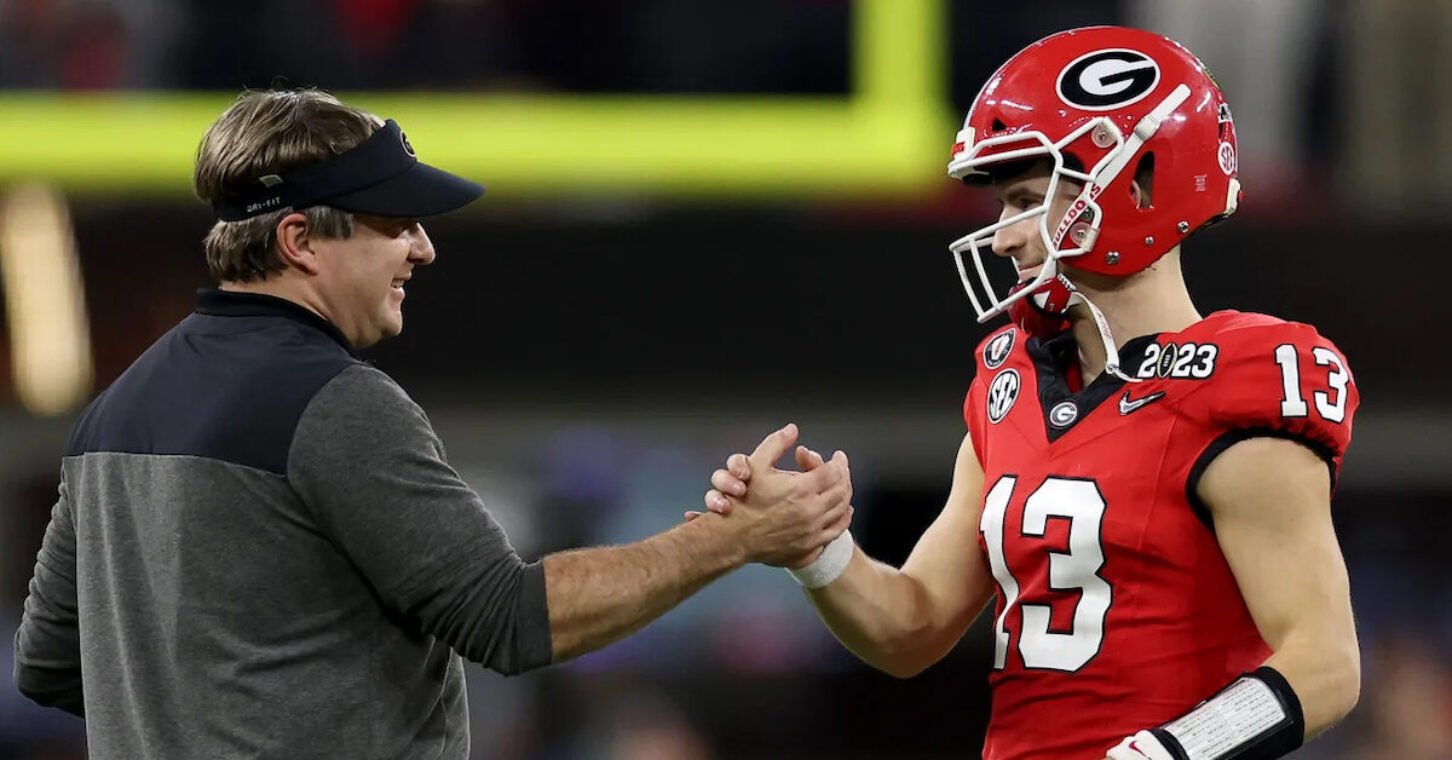
Contrary to popular belief, not all of life in the South revolves around college football. Oh sure, many weddings are scheduled to avoid fall Saturdays, and the Gold Dome calendar has been affected the last couple of years, but there are some aspects of life here that go on despite the gridiron … even if I’m having trouble thinking of any examples at the moment.
Still, I feel confident everyone in Georgia – Bulldog or not, football fan or not – is familiar by now with the story of Stetson Bennett IV.
A diminutive (by the standards of major football) quarterback from Blackshear, Bennett walked on at Georgia, left after a year to play at a junior college in hopes of boosting his fortunes, unexpectedly got an offer to return to Athens on scholarship, overcame a depth chart loaded with more highly touted prospects and wound up leading the Bulldogs to two consecutive national championships. The second one, of course, was clinched this past Monday night in a record-breaking rout of Texas Christian University.
After the first title, which broke a 41-year drought for the Bulldogs, Bennett famously took a swig from an expensive bottle of bourbon – and maybe several swigs of cheaper stuff as well, to judge by his groggy appearance early the next morning on ABC’s “Good Morning America.” During the 2022 season he pantomimed a mic drop after a particularly pretty pass, and a phone call after scoring against Tennessee (whose fans, it was alleged, had circulated his cell phone number on social media the night before and tried repeatedly to reach him).
All in good fun. But let us stipulate that his public persona, anyway – this Dawgs fan has never met him in person – is not one that evokes humility. That’s fine; I like my quarterback to be a little cocky. So what exactly does Bennett have to teach us here?
Here’s a hint: The humility is for us, not him.
Essential to the Stetson Bennett story are the legions of doubters he encountered along the way. Chief among them were college football coaches – including his own coaches, as head Bulldog Kirby Smart has acknowledged many times now – who didn’t think he was good enough to play quarterback for them. They learned they had him pegged wrong, as did many an opposing player who laid on his belly looking up from the field as Bennett tossed or ran for another TD.
And the fans. Oh, the fans.
When Bennett first got a chance to be the starter in 2020, it’s fair to say most Georgia fans hoped he’d merely stand in the gap until a more talented teammate got healthy. In 2021, when Bennett again got an opportunity because of injuries to a teammate, many Georgia fans doubted their team could go all the way with a former walk-on. In 2022, when Bennett decided to return for another shot at glory, some Georgia fans still wanted somehow to wish him away.
Why did they have such a hard time admitting they were wrong?
It would be a harder question to answer if we didn’t see it all the time, in other contexts.
We have a host of sayings about the metaphorical punishments for being prideful in the act of getting something wrong: “eat humble pie”; “eat crow”; “eat your words.” (Apparently, being wrong while prideful makes one famished.)
And in our personality-driven politics of the last couple of decades, many people prove utterly incapable of moving on from the politician they’d backed. They concoct all sorts of falsehoods and rationalizations to justify their hero’s words and deeds, and their own undying support for him.
Here, if you are convinced I am talking about one particular politician, especially one you just loathe, take a moment to reflect on your own loyalties. I have several different politicians in mind, representing both major parties. Chances are, you have liked one of them over the years.
We hate to admit we’re wrong. It’s human nature. But something in our current brand of politics makes us all the more loath to do so.
Maybe it’s the polarization and tribalism. Maybe it’s the constant heightening of the stakes in each successive “most important election of our lifetimes.” Maybe it’s the constant sense, for many, that we have to pick between the lesser of two evils, followed by quiet attempts to convince ourselves we actually chose someone good.
Whatever it is, it feels like one factor contributing to our ever angrier partisanship.
Following an election season in which another legendary Bulldog ran for office and inspired some of these same feelings in many Georgia voters, perhaps it’s only fitting that another, newly minted UGA legend came along to show it’s OK to be wrong about someone.
